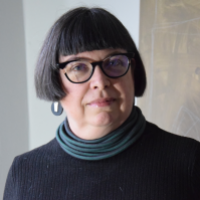Young people’s sense of self, including their self-worth, is important to their well-being. But is fun an integral part of young people’s selves, or is it a frivolous extra?
In a PEDAL seminar in May 2021, I shared a key and unexpected finding from the Who I Am study that identified the centrality of fun to children’s selves.
The Who I Am study examined self-concept/self-esteem scales’ content validity. Content validity is crucial – it assesses whether the scale actually measures what it claims to measure (or, does this scale measure ‘what it says on the tin’?). These scales are used in tens of thousands of psychological research studies to measure children and young people’s selves, yet the content in their items is quite limited – focusing largely on aspects relevant to school, such as academic and sporting achievement, peer popularity and behaviour.
I wanted to know what young people themselves had to say about this. Do self-concept scales adequately reflect children and young people’s selves?
In a large-scale, mixed methods study in the greater Dublin region, I invited 526 young people aged 10-13 years to identify their favourite activities and relationships – and, crucially, the meanings they associated with these. The young people drew, wrote, and talked in interviews. They also created Identity Pies and completed visual analogue scales to rate the importance of these activities and relationships. The study was funded by the Irish Department of Children and Youth Affairs and carried out at University College Dublin.
By drawing, writing and in interviews, young people told us about many activities and relationships that are not included in self-concept scales. Examples are friendship (rather than peer popularity), activities other than organised sports (such as creative pursuits, play, being active in other ways, and digital media), and a wide range of family relationships – including with pets. They also shared meanings of their favoured activities and relationships, many of which are also not found in widely used self-concept scales. These included experiencing a sense of social connection in their activities, often with friends, and also with family; being challenged in activities and improving their skills (rather than being ‘good’ at them); being physically active; close and loving relationships with family, friends and pets, including a sense of being cared for – and having fun.
What about fun?
Fun flowed through this entire dataset, a construct through which young people frequently refracted their key, most meaningful experiences. Far from being ’just’ something frivolous, when young people described fun as the essential meaning of their most important activities and relationships, this frequently indicated deep significance. It characterised many participants’ most salient activities and relationships, and was used equally frequently by girls and boys. It spanned many different qualities – relational, challenging, rewarding, hedonic, and transgressive – suggesting that fun is a kaleidoscopic construct in the eye of the beholder. We concluded that where fun was found, it reflected intrinsic rather than extrinsic motivation in young people’s activities and relationships – and intrinsic motivation is key to what Self-Determination Theory, from psychological researchers Richard Ryan and Ed Deci, describes as ‘true’ self-esteem.
The adult world tends to think of fun as a necessary part of a good childhood, and one of the features of play – yet paradoxically fun is also often viewed askance by adults, as a distracting, potentially troubling activity that gets in the way of learning and other sanctioned activities – particularly after the early childhood years. There’s a sense that many adults believe that children and young people do deserve to have fun, but only in sanctioned doses. The idea that fun plays a vital, integral role in their self-concept and well-being is rarely considered. Yet this is what young people told us: ‘fun’ activities and relationships are those that carry a quality of vitality, personal engagement and deep meaning.
Young people’s views opened up my understanding of what is meaningful for their self-concept. Consulting closely with potential participants is often (though not always) ignored in psychological research with children and young people, where there can be an assumption that adults know best about values and questions that are meaningful. Building on the Who I Am study I’ve advocated for bringing principles of listening to children and young people, of upholding their rights, and acting on these in research, to the work I do. Underlying this all is a commitment to interdisciplinarity – to expanding and deepening our knowledge by combining principles and insights from psychology with those from Childhood and Youth Studies – when seeking to understand children and young people and their lives.
Needless to say, the Who I Am study findings also created a professional interest in fun! I’m a founding Co-Director of the RUMPUS group for research into fun at The Open University’s Faculty of Wellbeing, Education and Language Studies. Our interdisciplinary, international work focuses on understanding fun across the life course: fun in children and young people’s lives, and fun in formal, informal, and non-formal learning at all ages.
We have been exploring definitions of fun, using balloons as part of a consensus workshop, led by Professor Rebecca Ferguson; developing a theoretical and empirical framework of fun in online learning and examining the value of fun in online learning, including emancipatory fun, led by Senior Research Fellow Dr. Ale Okada and Professor Kieron Sheehy.
Our PhD researchers Sarah Huxley and Emily Dowdeswell are working on fun in children’s learning in out-of-school and in-school contexts; here they talk about using found poetry to reflect the lived experience of digital presentations.
With our post-doctoral research associate Dr. Linda Plowright-Pepper we are exploring fun and embodied learning through dance/movement, partnering with the OU’s Centre for Children and Young People’s Wellbeing, The Belham Primary in South London and Dance Educates.

Relevant articles
- Click here for a summary of the Who Am I study
- ‘My favourite things to do’ and ‘my favourite people’: Exploring salient aspects of children’s self-concept (Tatlow-Golden & Guerin, 2010)
- Who I Am: The Meaning of Early Adolescents’ Most Valued Activities and Relationships, and Implications for Self-Concept Research (Tatlow-Golden & Guerin, 2017)
- How Valid Are Measures of Children’s Self-Concept/ Self-Esteem? Factors and Content Validity in Three Widely Used Scales (Tatlow-Golden & Guerin, 2019)

Mimi Tatlow-Golden
Senior Lecturer, School of Education, Childhood, Youth and Sport at The Open University; Co-Director, RUMPUS Research Group; Co-Director, Centre for Children and Young People's Wellbeing

